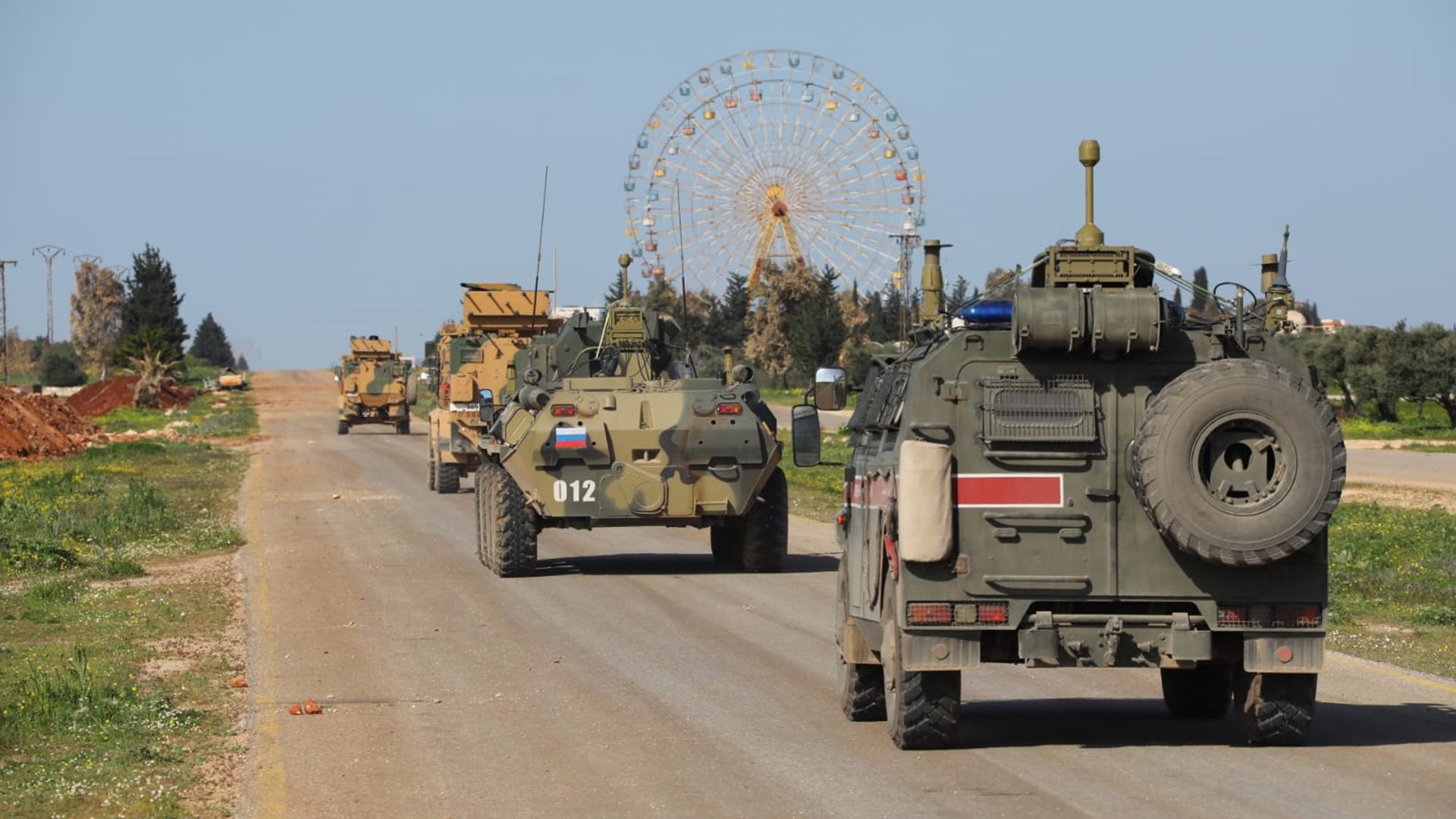Russian-Turkish joint patrols repeatedly targeted on M4 Highway in Syria’s Idlib
IDLIB, Syria (North Press) – A number of analysts and activists concerned with Idlib believe that the repeated targeting of joint Russian-Turkish patrols on the M4 Highway aim to disrupt the March 5 ceasefire agreement.
Over the past two months, the joint patrols were targeted on M4 Highway, wounding a number of Russian troops and damaging Turkish vehicles, despite the deployment of Hayat Tahrir al-Sham (HTS) members and pro-Turkey Syrian National Army members along the route.
Mohanad Oglu, a Turkish political analyst, told North Press that the attacks “target the Russian-Turkish ceasefire agreement that disrupts the interests of some extremist opposition groups.”
Khattab Shishani Brigade attacked a Russian-Turkish joint patrol on August 25, injuring two Russian soldiers, according to Russian news agency Sputnik.
In a statement, the group threatened to continue the attacks, adding that “Russians understand only the language of attack and targeting.”
Meanwhile, another joint patrol was targeted on August 15 in Idlib, with no recorded losses or damage.
On July 14, a VBIED targeted a joint patrol near Ariha city, wounding three Russian soldiers.
Mustafa Muhammad, a political analyst residing in Turkey, told North Press, “The number of attacks increased before the end of a move to push back Syrian government forces near the Morek border, and before the opposition groups retook areas that they lost due to the military operation.”
“Some civilians oppose the joint patrols on the M4 Highway, fearing a Syrian government advance,” he added.
He pointed out that generally, “there are people who do not agree with the political operation; rather, they prefer confrontation and are unable to start a military operation.”
“Moreover, the Syrian government, who takes advantage of those provocations and Russian mobilization under the pretext of fighting terrorist organizations, is the bigger beneficiary,” he added.
Abu Obada Idlibi, an activist close to the Turkish-backed Syrian National Army, said, “It is said that what is going on is a Russian play in order to pressure Turkey and guarantee better understandings.”
Idlibi added that “the previous words are not accurate…security violations take place, but the understanding of the two parties cannot stop the violations.”
“Russia can discuss the attacks any time, and can also set a new map,” he further explained.
In this regard, Denis Korkodinov, who is the Head of the International Center for Political Analysis and Prediction, told North Press, “According to the terms of Russian-Turkish agreements regarding the joint patrols, they reflect a Russian-Turkish desire to protect civilians from armed attacks and maintain safety.”
He pointed out that the implementation of such agreements includes some difficulties related to Turkey’s reluctance to allow Russian soldiers to enter areas where the main armed forces are stationed and which have a strategic role for Turkish politics.
Moscow is interested in guaranteeing its control over all areas of Idlib, despite Turkey’s opposition to the strengthening of Russian influence because of the uncoordinated positions of the parties, according to Korkodinov.
He added, “Moreover, most of the attacks were in cooperation with the Turkish leadership.”
” Turkey uses these attacks to pressure Moscow, while Moscow does not realize that its ally operates the attacks,” Korkodinov said.

